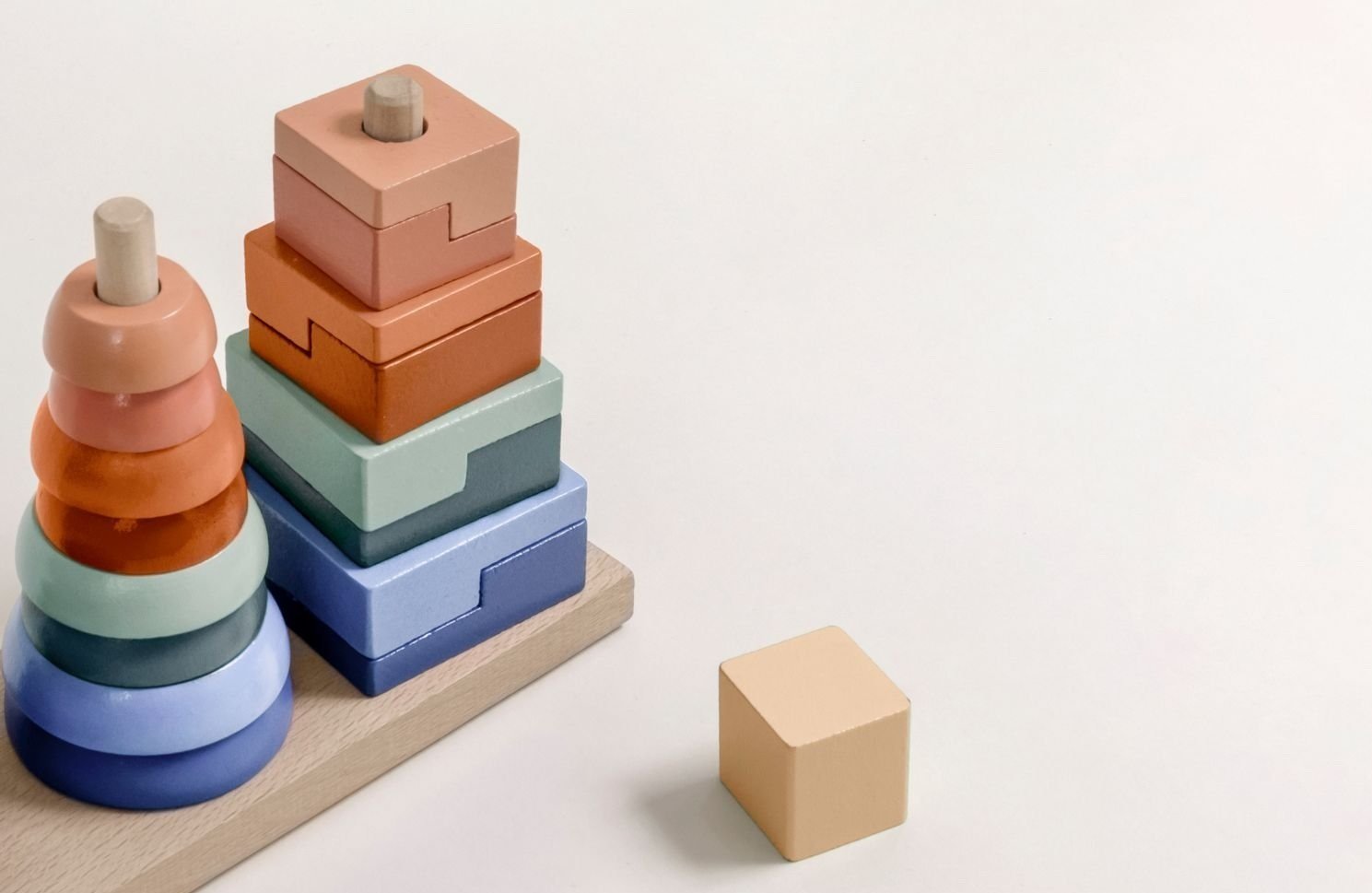
PLAY THERAPY
Play therapy offers a transformative pathway for children to explore their emotions, navigate challenges, and find healing through the power of imagination and creativity. Play therapy is a gentle, yet profoundly effective process that builds therapeutic rapport while nurturing overall emotional well-being.
Imaginative Play
-

Dollhouse and Accessories
Dollhouses allow children to play out their thoughts, emotions, and experiences. This kind of “real world” play can encourage kids to externalize their internal world while facilitating a unique form of communication if verbal expression is challenging or limited.
-

Critter Characters
Figures provide an opportunity for role-play and creative problem solving within the safe and familiar comfort of play.
-

Animal Families
Animal families are a way for children to demonstrate their understanding of family and peer dynamics. Animals are familiar but separate from us, so they can represent people in our world from a safe distance.
-
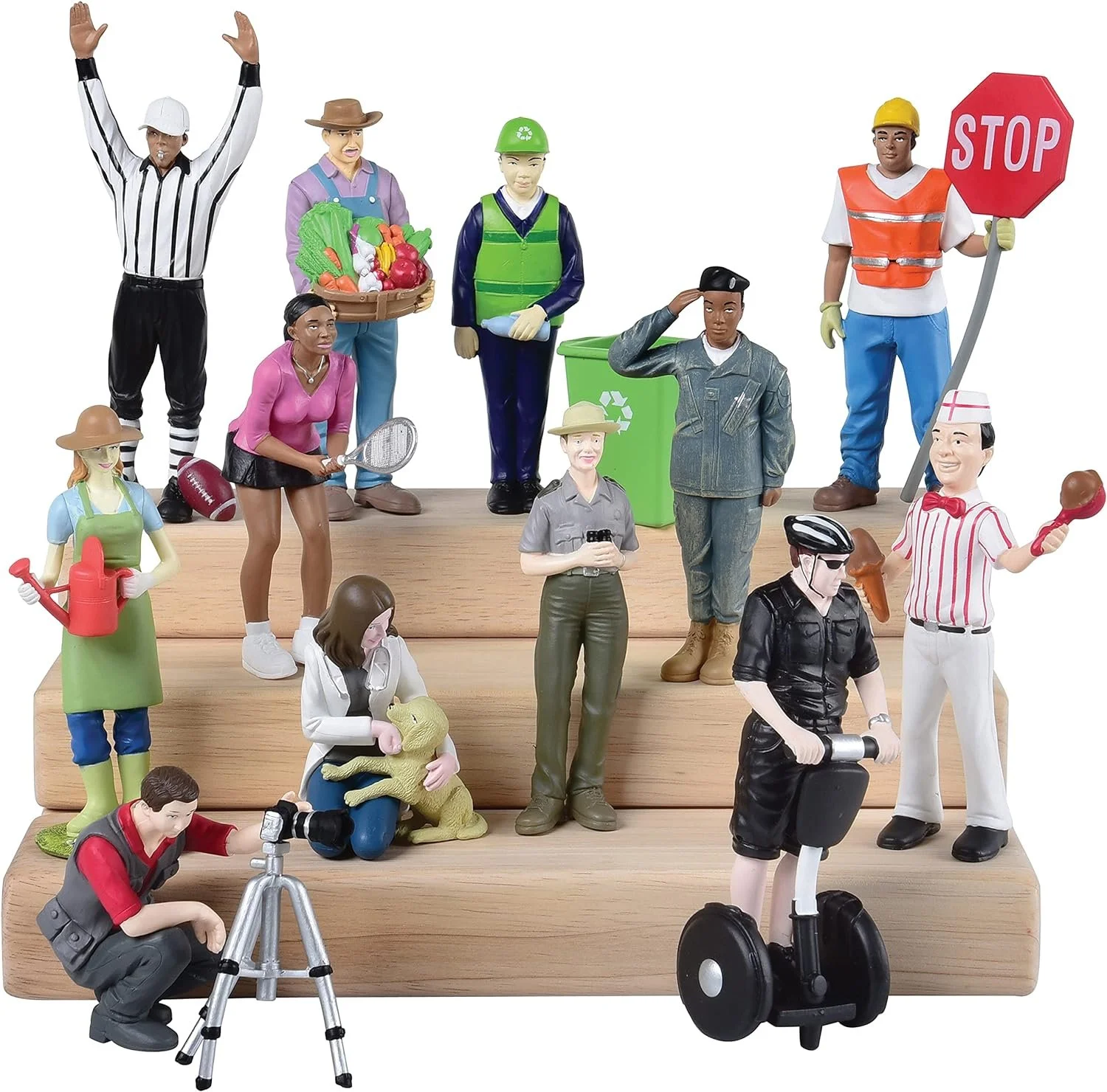
Human Figures
Through the act of nurturing, role-playing, and storytelling, children can actualize and process complex emotions, fostering a deeper understanding of themselves and their relationships.
-

Emergency Vehicles
Emergency vehicle toys allow children to navigate and process challenging emotions related to crisis and safety. Ambulances, fire trucks, and police cars help kids to explore themes of rescue, protection, vulnerability, and control.
-

Town Rug
A representation of a community can be a symbolic microcosm where children can navigate and make sense of their world. The town rug provides a structured yet flexible platform for play, and encourages a sense of community, problem-solving, and the development of social skills.
-

Birthday Cake
Blowing out candles is a playful way for children to practice intentional breaths that they can employ when feeling dysregulated or upset. Take mindfulness practice one step further and encourage kids to think of something they are grateful for, or “a wish come true,” as they blow out each candle.
Pair this activity with our Breathing Techniques infographic.
-

Play Food
Replicas of familiar foods allow children to engage with and explore their relationship with nourishment, family dynamics, and personal preferences.
Check out our Family Dinner Guide to learn about the documented benefits of a shared meal!
-

Play Set
Play sets often represent various life scenarios and enable kids to engage in role-playing and storytelling.
-
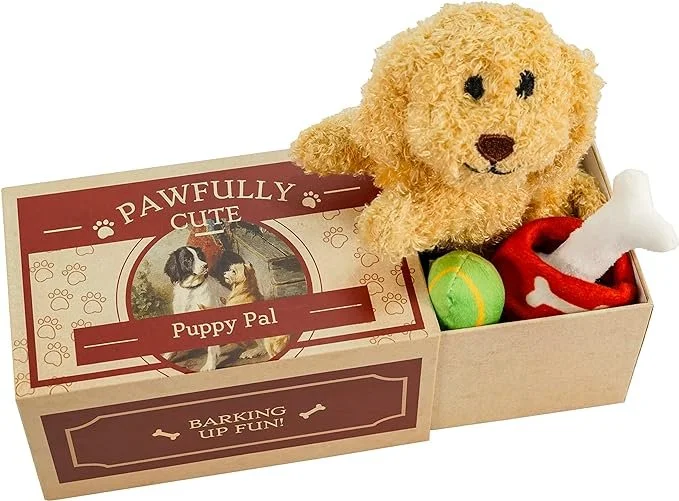
Puppy-in-a-Box
Stuffed animals offer children an outlet for expressing and processing emotions. Use this puppy-in-a-box to help a child understand empathy and resilience.
“How does the puppy act when she’s scared? How could you help her feel safe? How does the puppy act when she’s excited? How do you play with her?”
-

Medical Kit
A toy medical kit provides an opportunity for children to explore and express their feelings surrounding health, illness, and care as they play out scenarios related to physical and emotional well-being.
This form of symbolic play not only helps demystify medical experiences, but also encourages the development of empathy, communication skills, and a sense of control.
-

Hand Puppet
Puppet characters offer a non-threatening and engaging medium for children to express themselves. Use hand puppets to navigate sensitive topics, encourage empathy, and gain valuable insights into a child's inner world.

Sensory Play
-
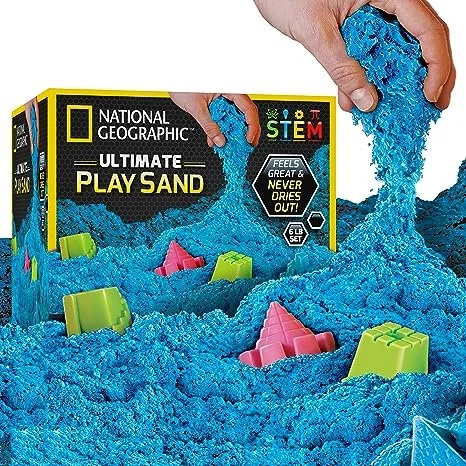
Kinetic Sand
The unique texture of kinetic sand provides a calming sensory experience. Having a hands-on activity is a great way to engage kids in the therapeutic space.
Learn more about how to use kinetic sand in our blog post: 10 Hands-On Therapeutic Activities for Kids.
-
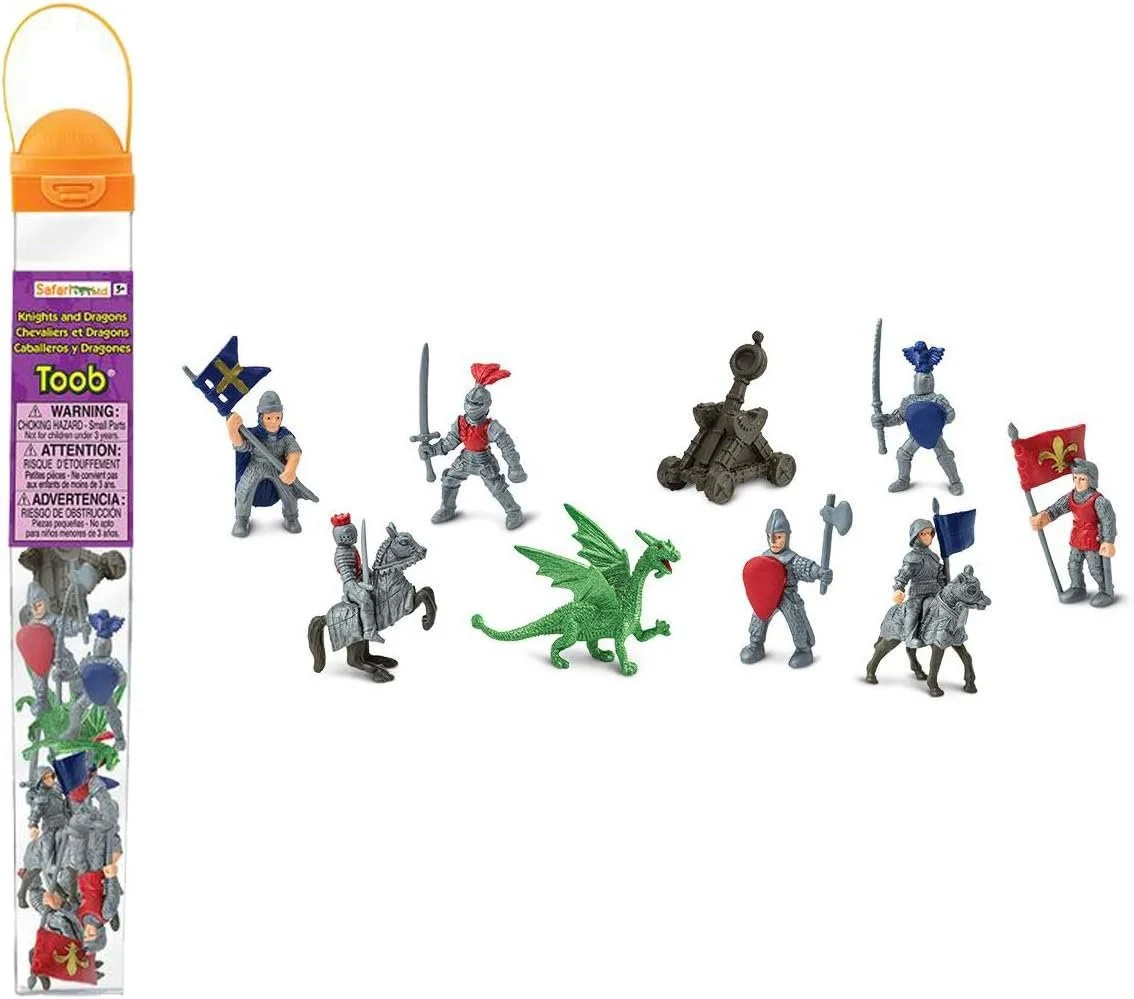
Sand Tray Toys
In sand tray therapy, the selection of accessories is intentional and should include a range of options that can represent the child's unique experiences and cultural background.
By incorporating elements that hold personal significance for the child, therapists create a space where kids can construct unique healing narratives.
-

Sand Tray
The process of arranging and manipulating figures and objects in the sand is a form of play that offers children a safe and engaging way to communicate complex emotions and experiences.
-

Music Box
Music can be a powerful ally in the therapeutic process by fostering emotional well-being and regulation.
-
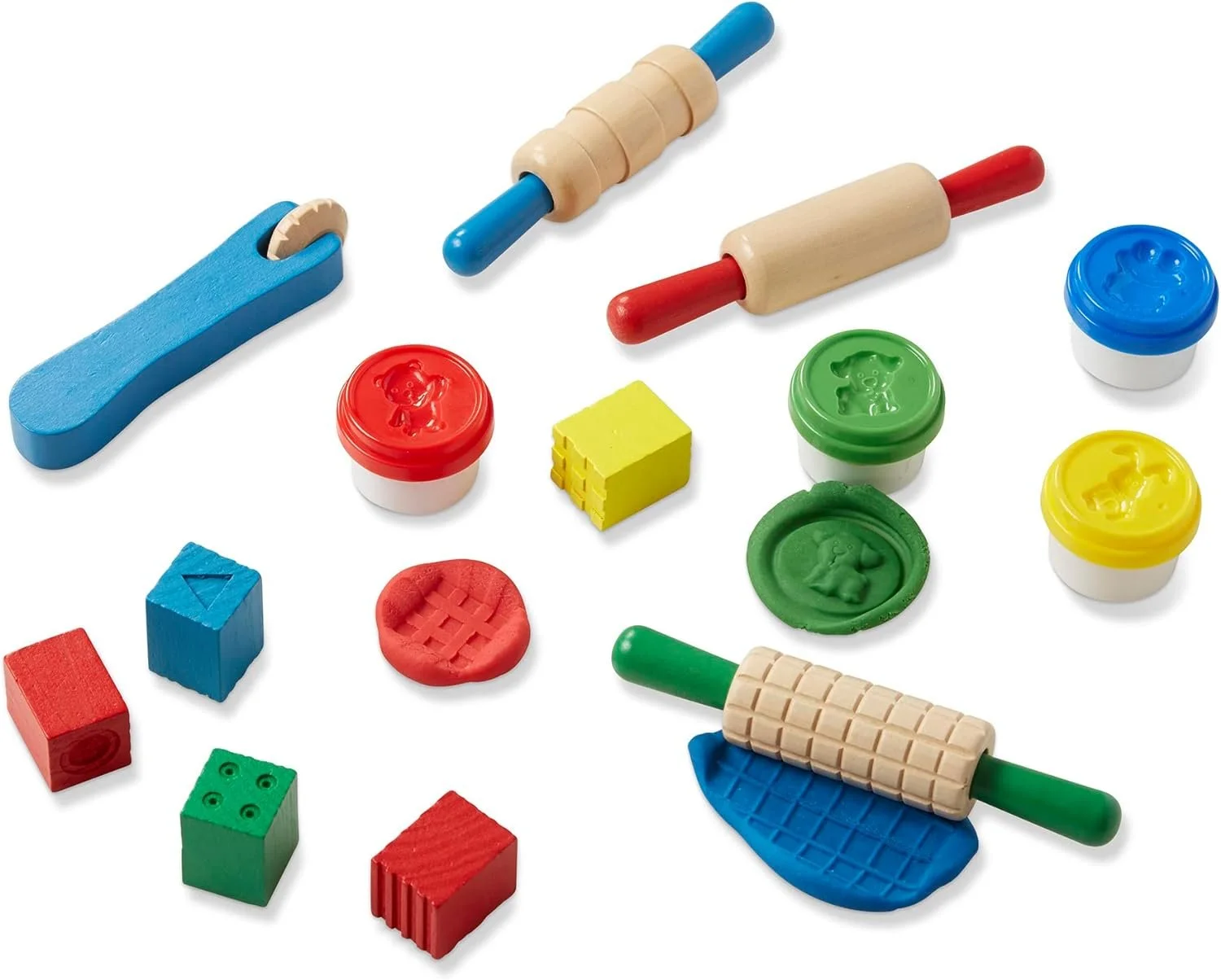
Dough and Tools
Moldable dough is a tactile and expressive sensory outlet for kids.
Check out our Therapeutic Activities with Dough!
-

Bubbles
Bubbles are a great visual way to teach kids the art of focused breath. Through focused “bubble breathing” techniques, children learn to connect with their breath to practice mindfulness and concentration.
-
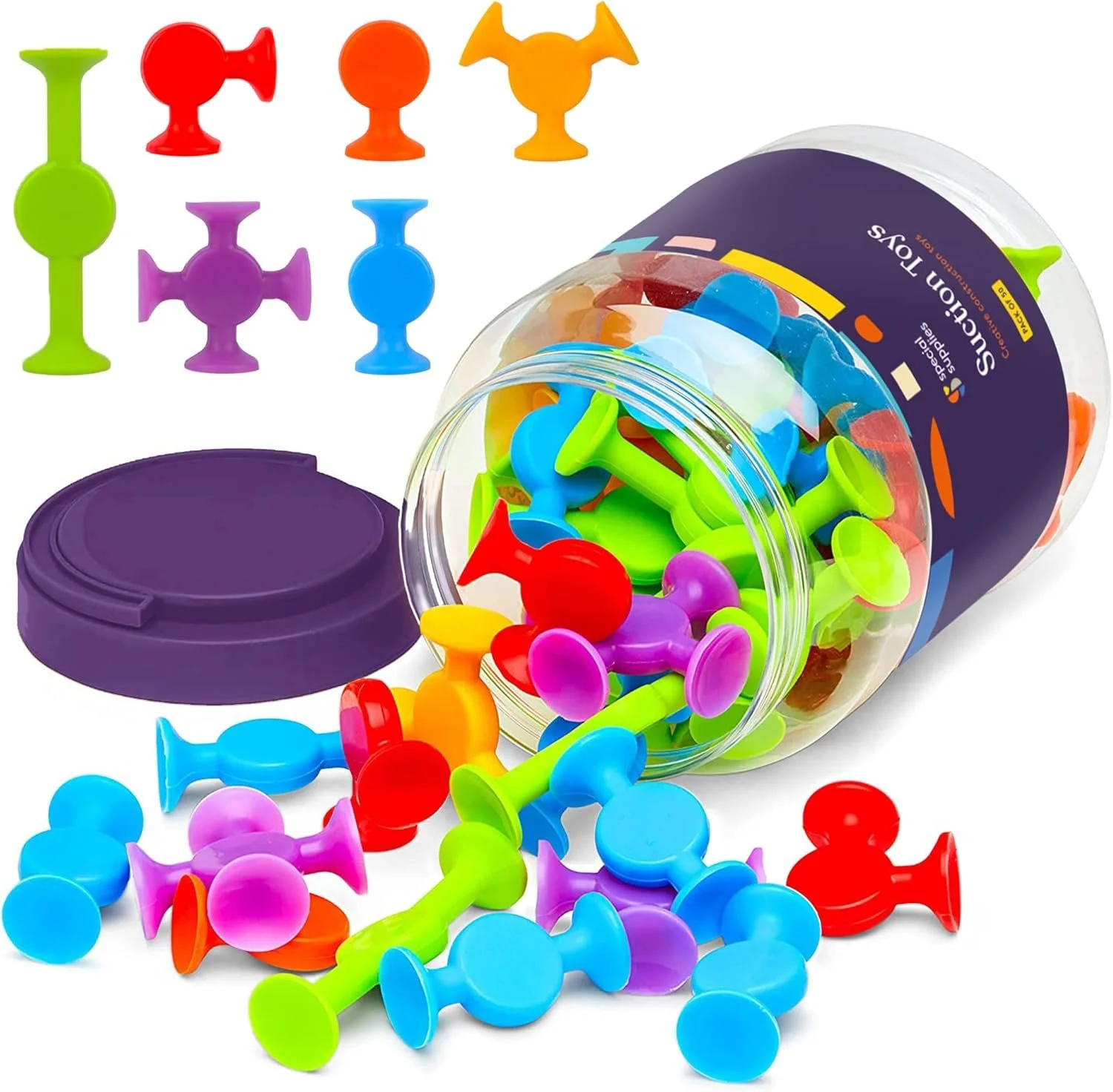
Suction Toys
These suction toys help kids stay focused during therapeutic tasks by harnessing their energy through a sensorial physical outlet.
This toy is included in our list of Best Fidget Toys for kids!
-

Steel Drum
Sensorial sounds contribute to the therapeutic process by nurturing resilience, creativity, and emotional well-being.
Learn more about Sensory Processing Disorders and accommodations.
Constructive Play
-

Colored Pane Blocks
Colored pane blocks allow children to experiment with combining colors while stacking and balancing forms.
We love to use these blocks to talk about feelings and colors! “When we mix yellow and blue we get a new color—green! When we mix nervous and hopeful we get a new feeling—excited!”
Check out our Color-Coded Feelings printable HERE.
-

Lego
Playing with Lego allows children to develop fine motor skills through creation.
Check out our Build-It Prompts to make Lego a therapeutic activity!
-

Design Blocks
Design blocks allow kids to follow a pattern or create their own design. These blocks combine the benefits of mindfulness practice with the fulfillment of problem-solving. Open-ended puzzles promote focus and emotional regulation.
-

Balance Blocks
These blocks challenge children to stack and arrange in a way that hones fine motor skills, focus, and coordination.
-

Beading Kit
Beading encourages patience, creativity, and focus as kids select, organize, and assemble pieces. It can also serve as a meditative outlet by providing children with a calming and immersive experience.
We love to use bead patterns to talk about emotional and behavioral patterns!
-

Magnetic Tiles
These colorful tiles offer endless possibilities for creative construction.
Use Color-Coded Feelings for integrated dialogue! “When we grab a yellow tile, let’s talk about a time we felt happy.”
-

Wooden Blocks
The open-ended nature of block play has great value in child therapy.
For added therapeutic value, print our Question Block Tabs and adhere them to the blocks. Answer questions while you build!
-
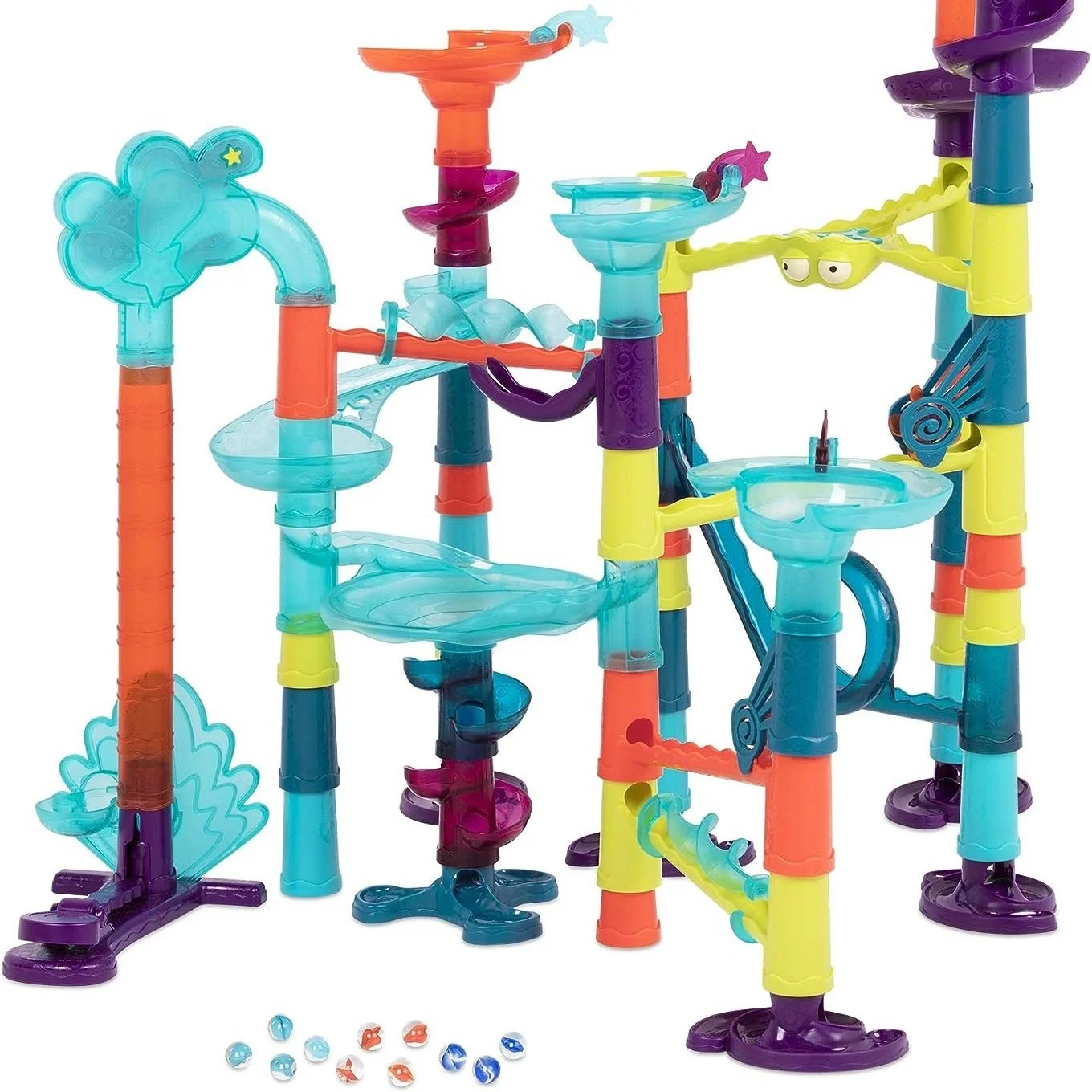
Marble Run
Marble runs encourage children to design new pathways and problem-solve in real-time.
Race the marbles and review concepts of winning and losing! Nurture a growth mindset by encouraging structural alterations! Use metaphor to talk about the importance of strong foundations!

Cooperative Play
-
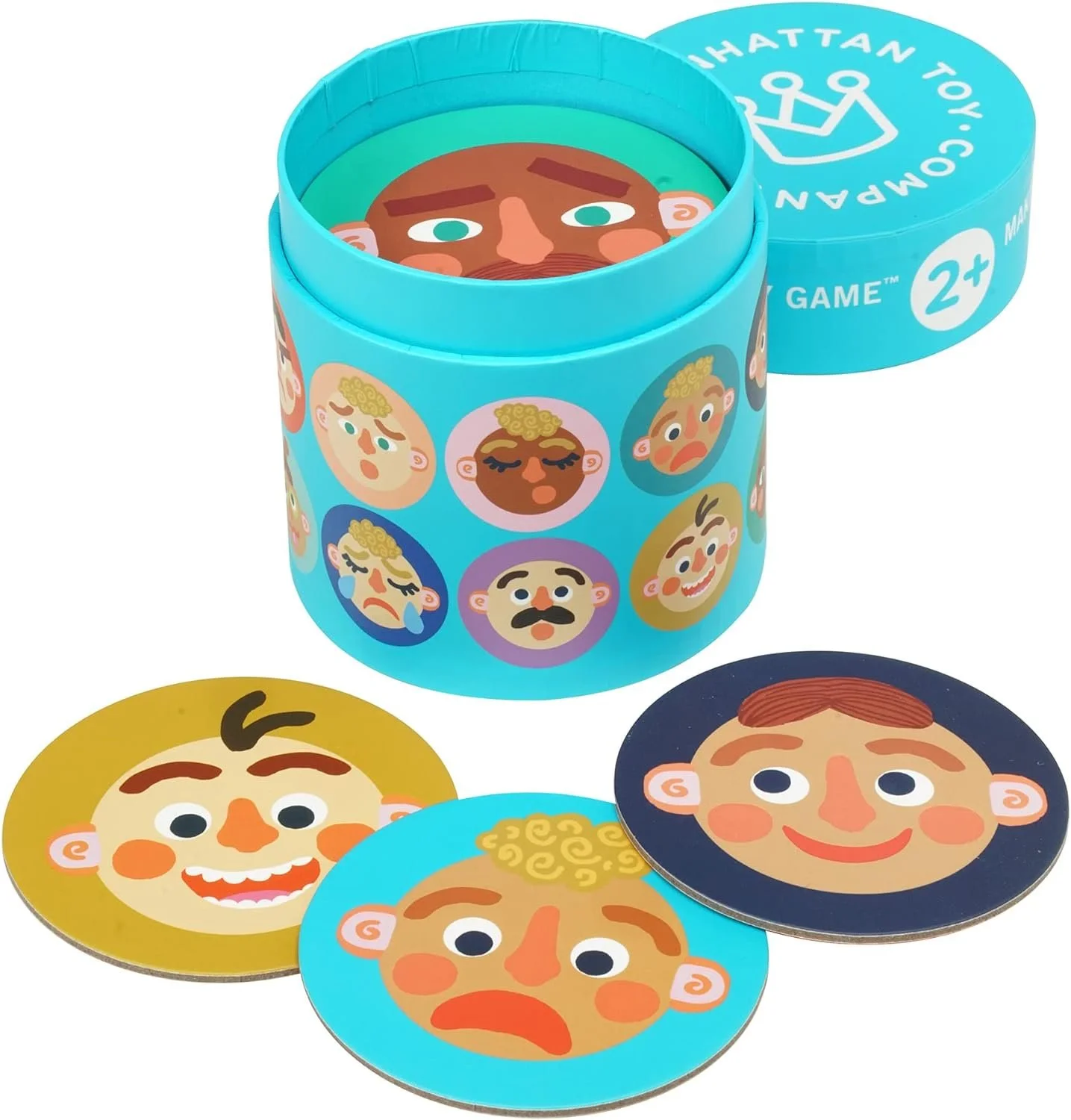
Matching Game
This emotions matching game uses colorful cards to help kids identify and understand a range of feelings in a playful context. Matching facial expressions to corresponding feelings enhances emotional intelligence, fosters self-awareness, and promotes communication skills.
Contextualize feelings by asking introspective questions: “You made a match! How do you think that face is feeling? Can you tell me about a time you felt like that?”
-
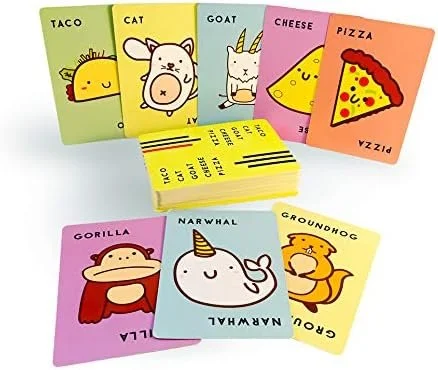
Taco Cat Goat Cheese Pizza
This fast-paced, easy-to-learn card game disarms tension and helps a child feel at ease in a therapeutic setting.
While counseling can be hard work, it should also have elements of levity. Games can help establish trust and rapport between the therapist and the child to allow for meaningful therapeutic work to bloom.
-
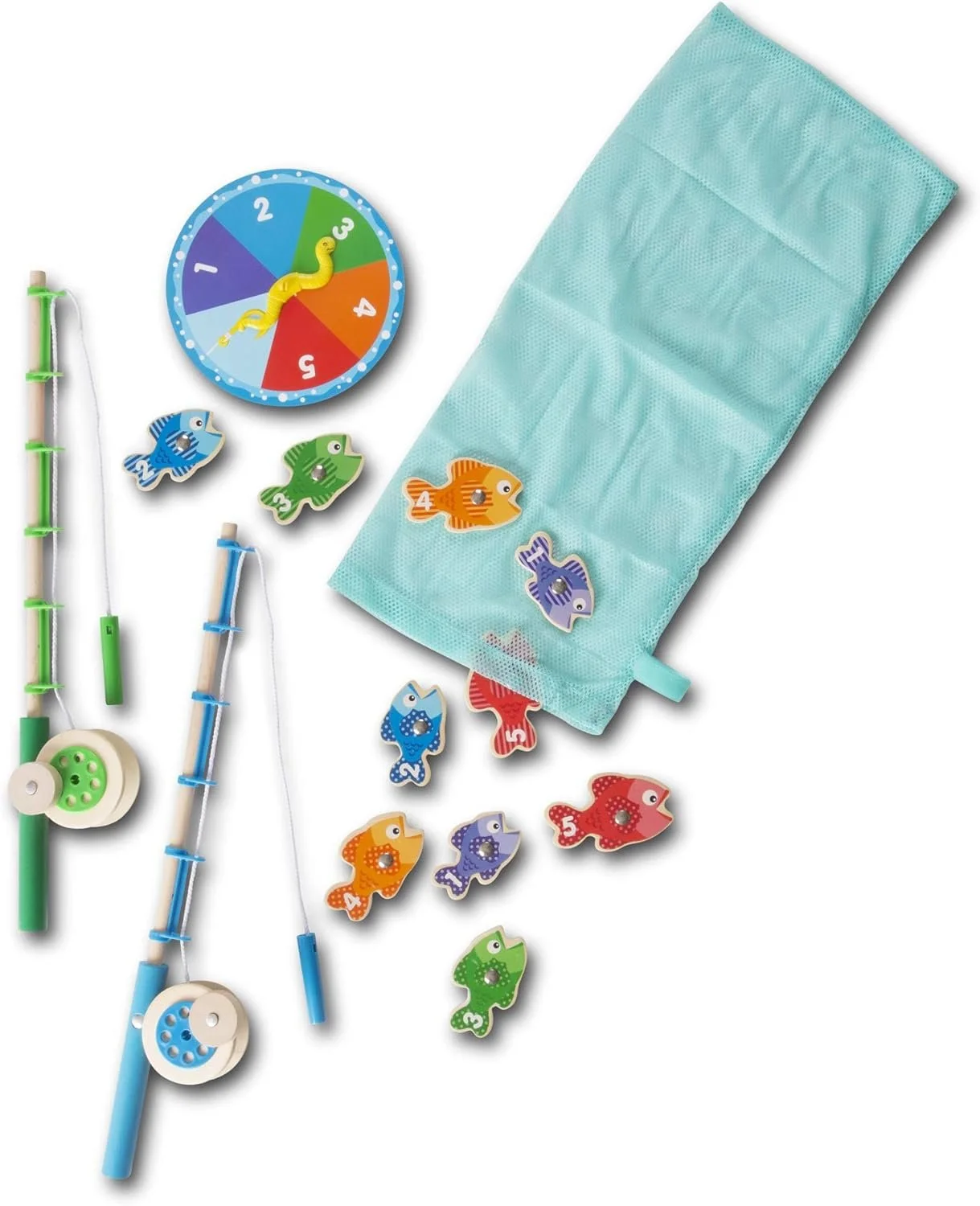
Magnetic Fishing Game
This fishing game helps kids practice hand-eye coordination and number/color recognition while introducing them to simple rules and directives.
-

Mancala
Mancala is a peaceful game of strategy that helps kids with prediction and addition skills. Since this game tends to be played quietly, consider putting on soft music and encouraging mindfulness while playing.
-

Tumbling Tower
A tumble tower is a great hands-on game to break the ice. This game requires competitive teamwork to get the tower as high as possible.
Write your own questions on the blocks, or print and adhere our free question tabs and answer them as you play!
-
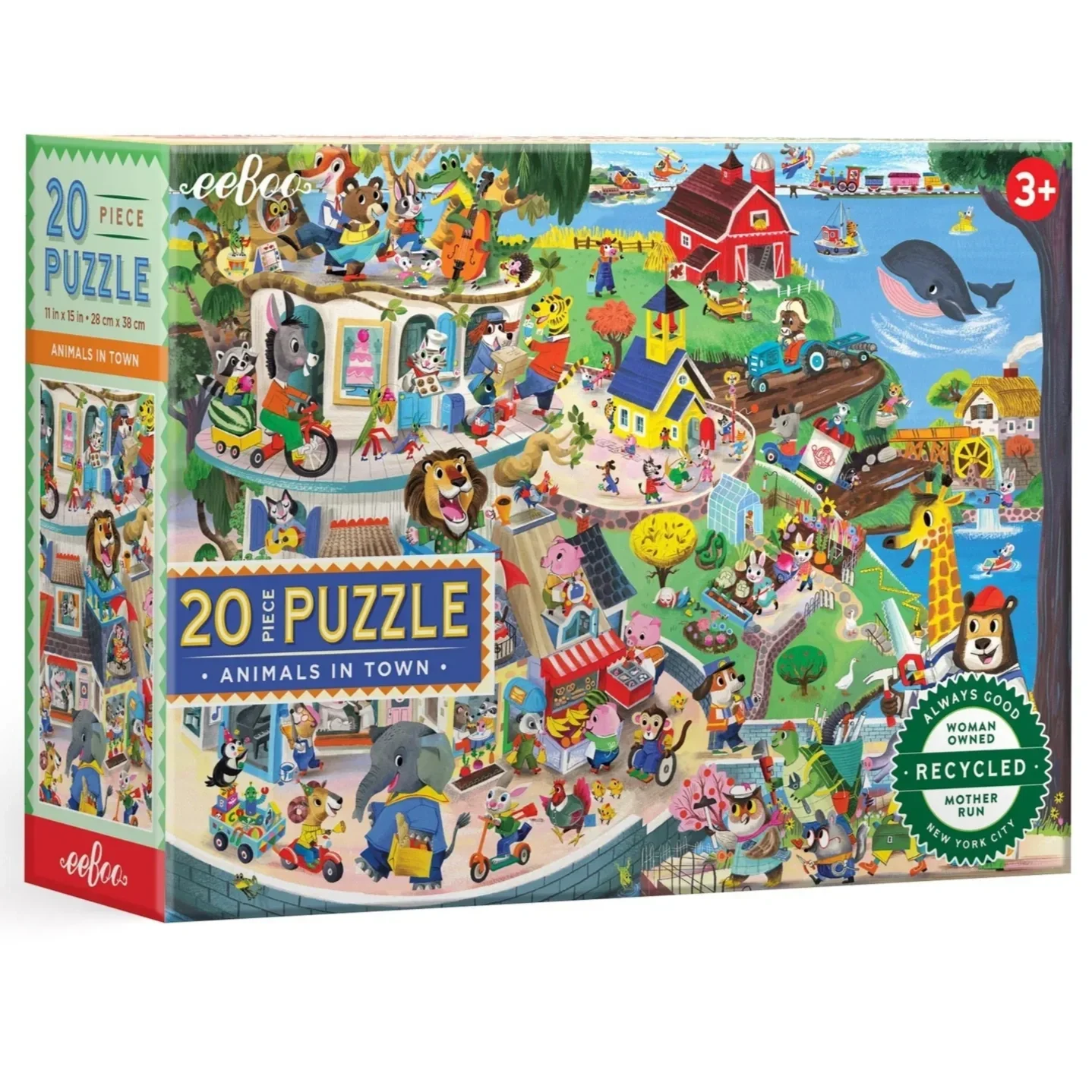
Puzzle
Puzzles help kids develop problem-solving skills, patience, and persistence. They also provide opportunities to observe a child's cognitive abilities, communication style, and emotional responses.
This puzzle is “a marvelous starting point to talk and think about what makes up a community and the busy world beyond our homes.”
-

Jewelry Game
This jewelry game offers kids a fun visual way to observe competitive progression and to practice winning and losing with integrity.
Use this game to practice gratitude. If you get the “cursed ring,” think of one thing in your life that you are grateful for.
-
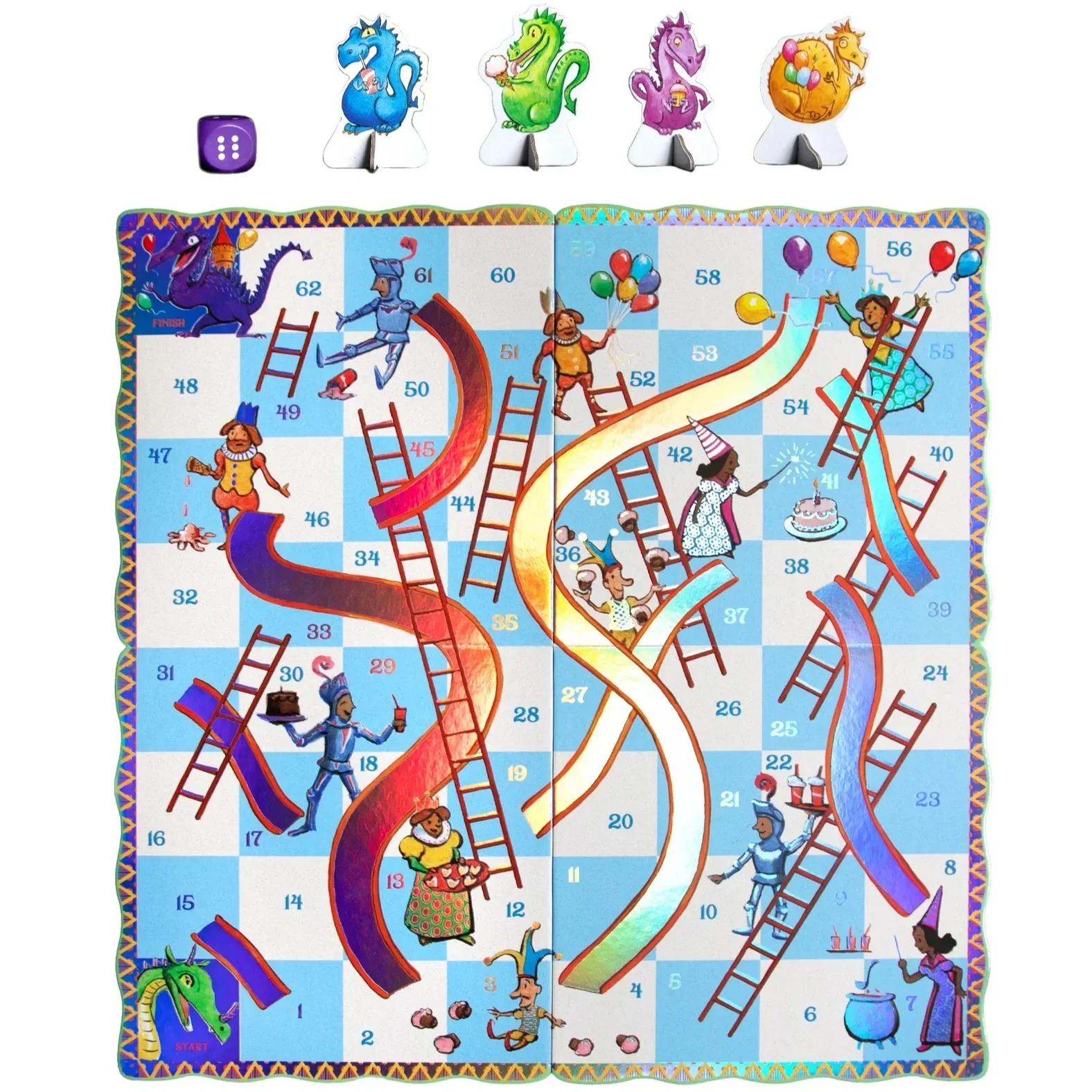
Slips and Ladders
This game of chance is a great way for kids to experience the ups and downs of game-play.
Use the “slips” to talk about coping skills! As you slide down, name something that helps you feel better when you’re down.
-

The Sneaky, Snacky Squirrel
With an element of imaginative play, this game encourages color recognition and hand-eye coordination.
Use the colors on the spinner to practice mindfulness through the senses. When you spin a color, talk about the corresponding sense: Yellow: What is something you can see? / Purple: What is something you can hear? / Red: What is something you can smell? / Blue: What is something you can touch? / Green: What is something you can taste?
-

String Game
String games require light-hearted collaboration that builds self-esteem and confidence. Through the experience of rewarded effort and mastery, kids learn to trust in their abilities and develop a more positive self-image.
-
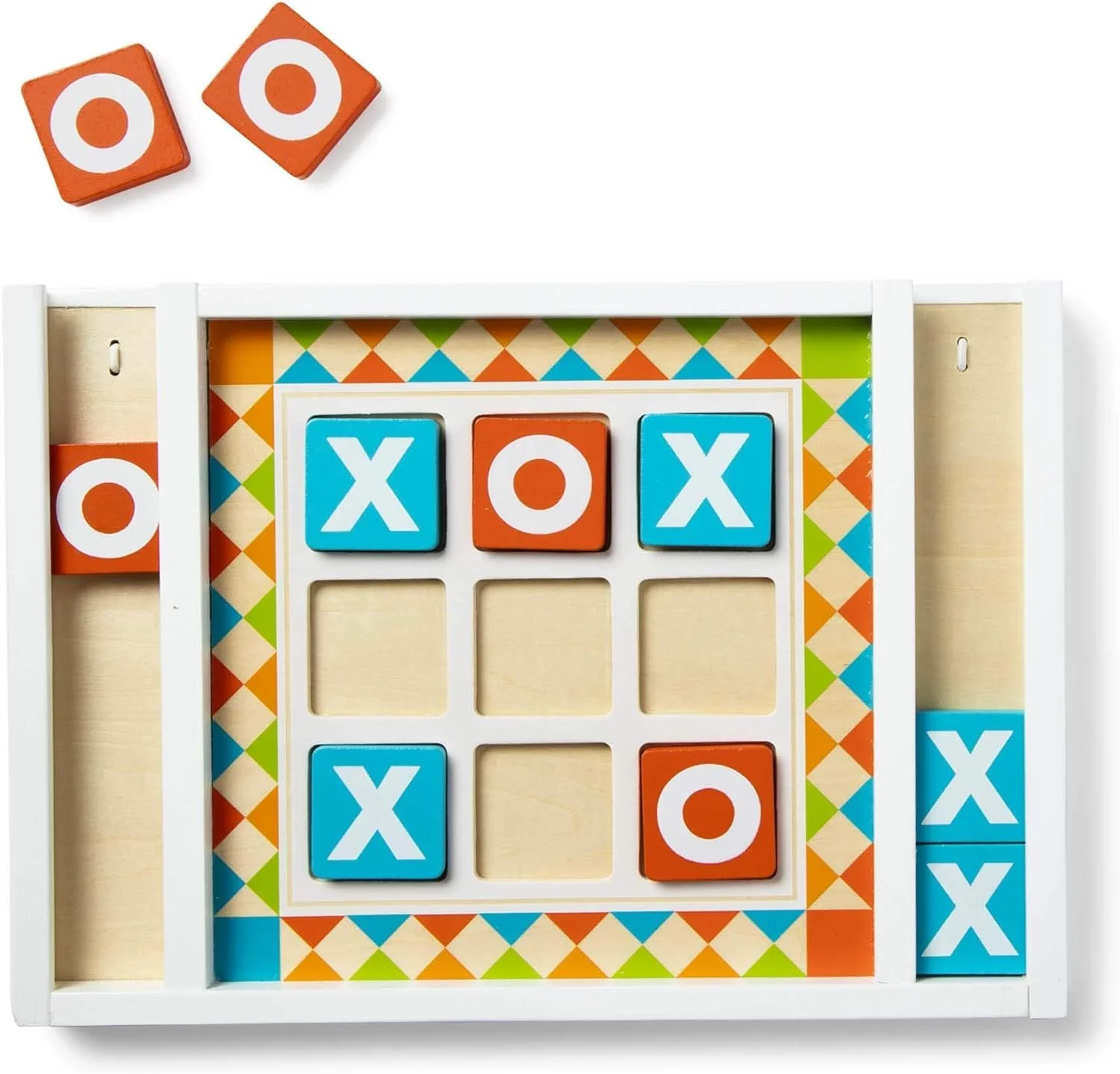
Tic-Tac-Toe
Tic-Tac-Toe is a classic game of strategy that can be learned and played quickly. Because the game moves fast, it is an ideal way for kids to practice winning and losing with integrity.
Make the game more interesting by having the loser pick a “Talk or Do” challenge. If no one wins, both people pick a challenge!
-
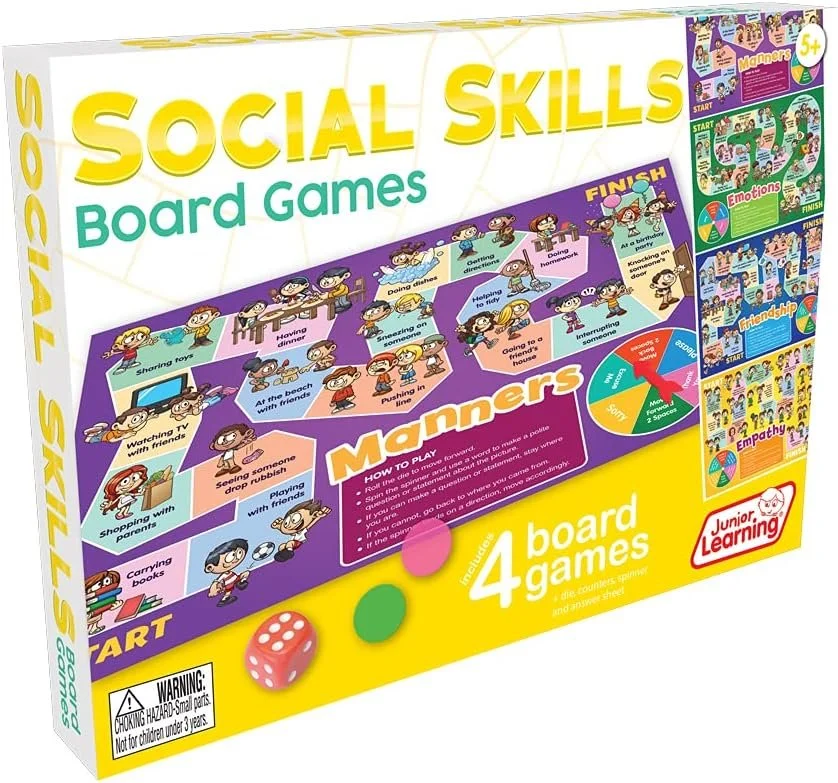
Social Skills Game
This simple, easy-to-learn board game targets the development of 4 essential social skills: empathy, friendship, manners, and emotional understanding.
Instructional Play
-

Emotion Faces
By arranging magnetic pieces to create various facial expressions, children engage in a hands-on, visual exploration of emotions. This playful approach encourages open dialogue about feelings and helps children develop emotional intelligence and articulation.
-

Sorting Set
Through instructional play with community representations, kids develop a sense of empathy, cooperation, and individuality. These skills lay the foundation for positive social interactions! This toy not only encourages kids to sort colors and objects, but it also highlights family and community dynamics.
-
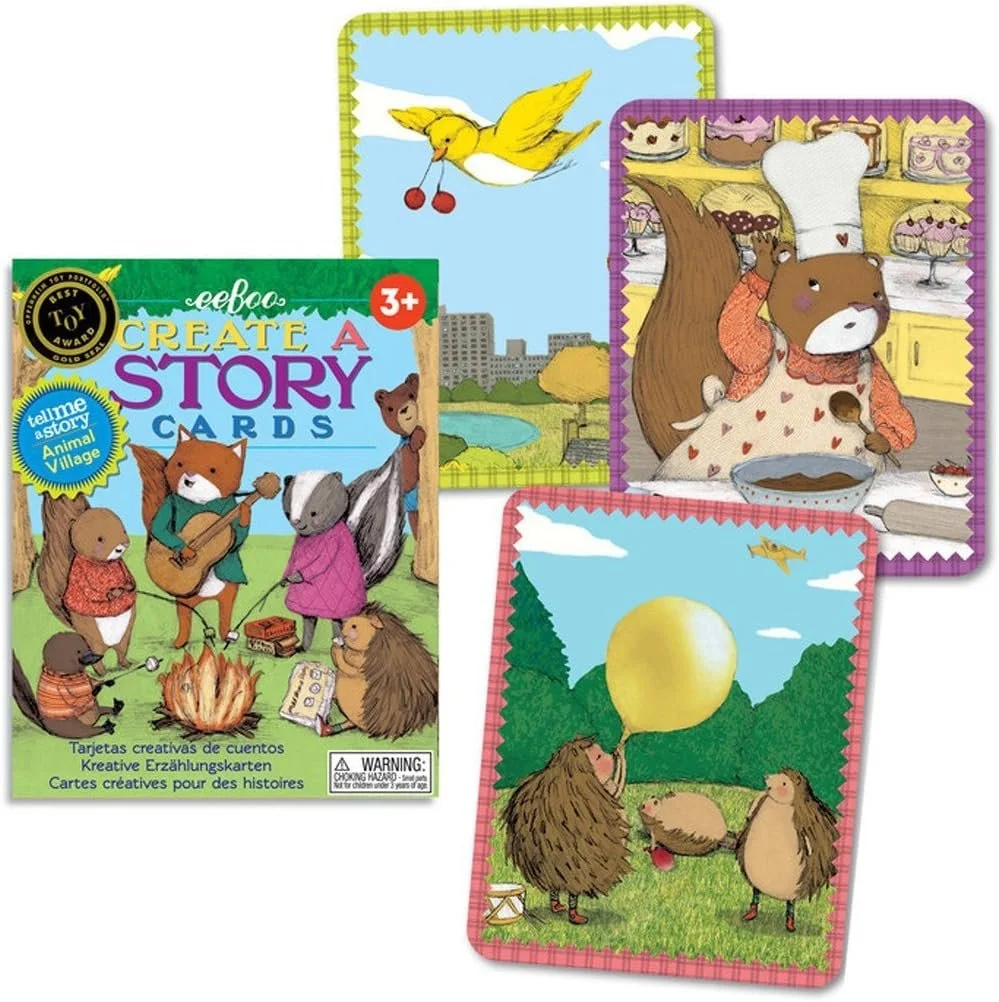
Story Cards
Story cards encourage dynamic engagement that nurtures social-emotional development. By prompting kids to create and share stories, they learn to navigate complex emotions, build interpersonal skills, and develop a deeper understanding of themselves and others.
-

Circuit Set
Incorporating STEM activities into play therapy not only helps children explore and understand the world around them, but also provides an engaging way to process emotions and behaviors.
We love to use simple circuits to talk about cause and effect! Explore the underlying factors that may be influencing a child's behavior, and help them recognize that behaviors are often symptoms of deeper emotional challenges.
-

Brain Teaser
These kind of playful challenges are not only entertaining, but they also stimulate logical reasoning, concentration, patience, and creativity. The joy of unlocking a puzzle lays the foundation for lifelong curiosity, perseverance when things don’t come easily, and passion for intellectual exploration.
We highly recommend this Red Riding Hood puzzle that offers fun challenges and promotes a growth mindset for kids and adults!
-

Science Experiment
Through scientific play, children can experiment with cause and effect and learn to better understand the world around them.
We love to use the volcano to talk about feeling eruptions!
“Baking Soda + Vinegar” is kind of like “Tired + Frustrated”—they both lead to an eruption! What other feelings blend together to make something new?
-
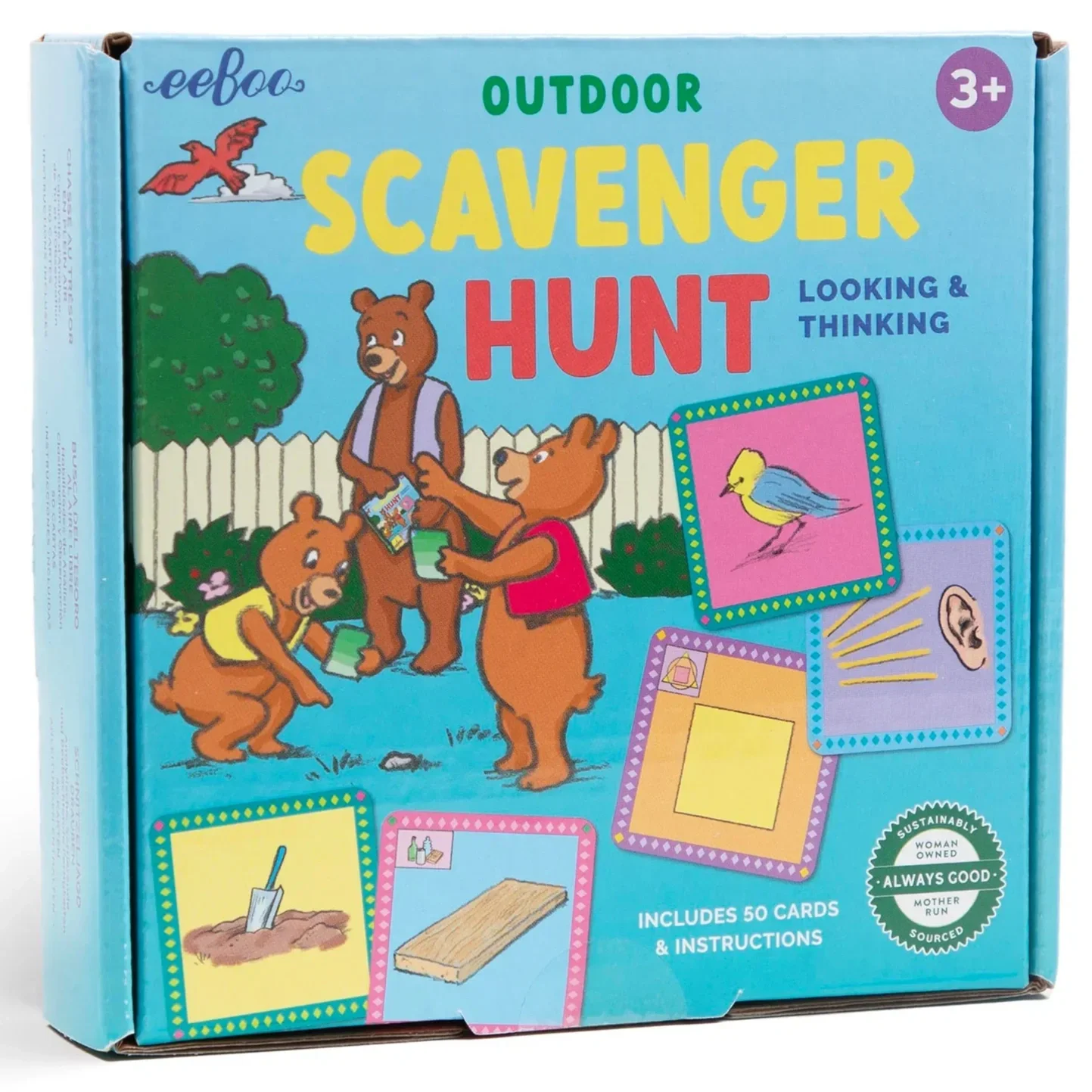
Scavenger Hunt
These cards inspire delightful quests and help kids foster a mindful connection with their environment.
Check out our free printable scavenger hunts HERE.
-

Yoga Cards
Through a blend of playful poses, breathing exercises, and mindfulness techniques, these yoga cards help children enhance their flexibility, strength, and coordination while cultivating a sense of calm concentration.
Yoga is a great way to introduce intentional physical activity into a therapy session!
-
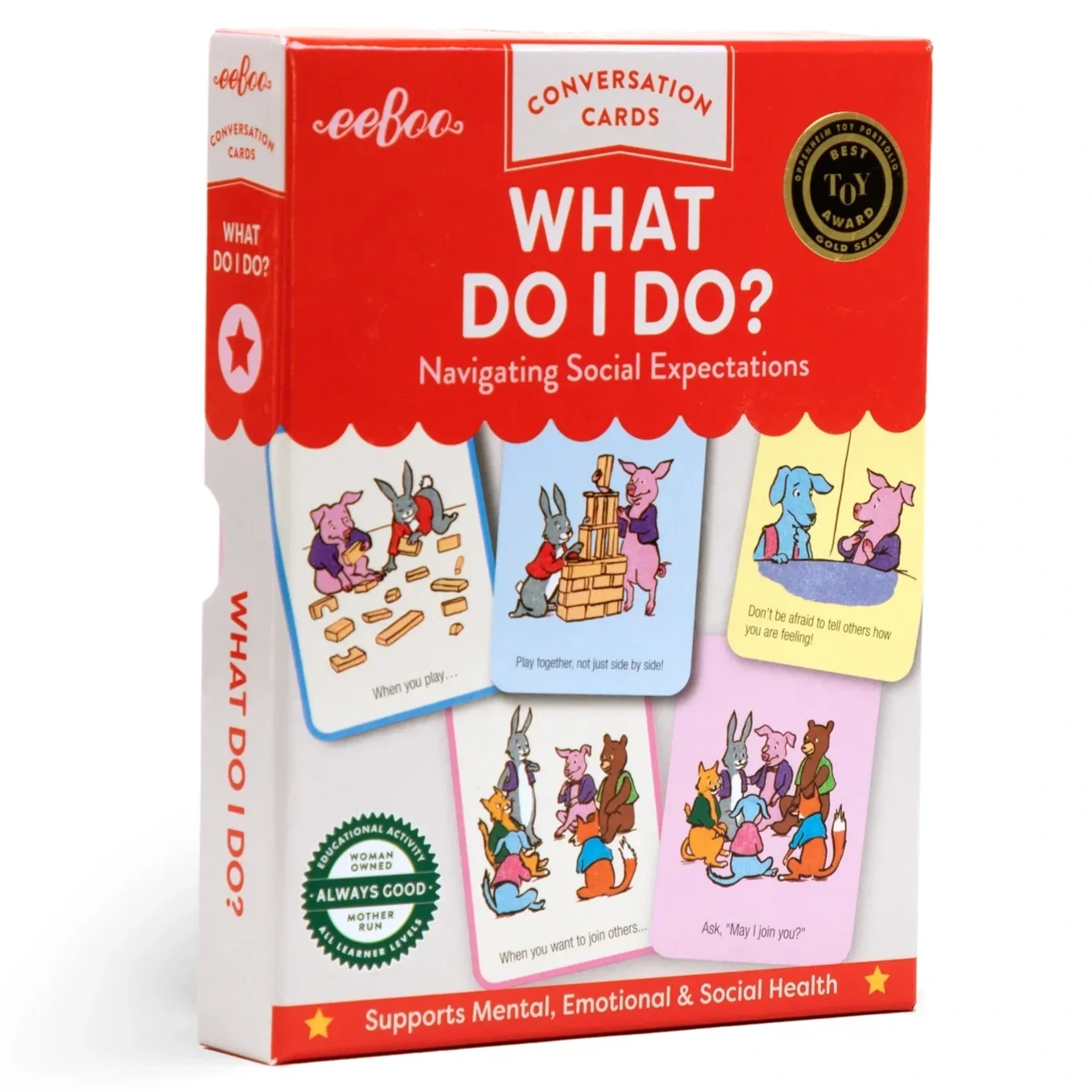
Conversation Cards
These conversation cards encourage kids to consider responsibility, empathy, and community awareness when faced with difficult choices. The exploration of values helps shape our character and sets the foundation for a more inclusive and compassionate society.
-
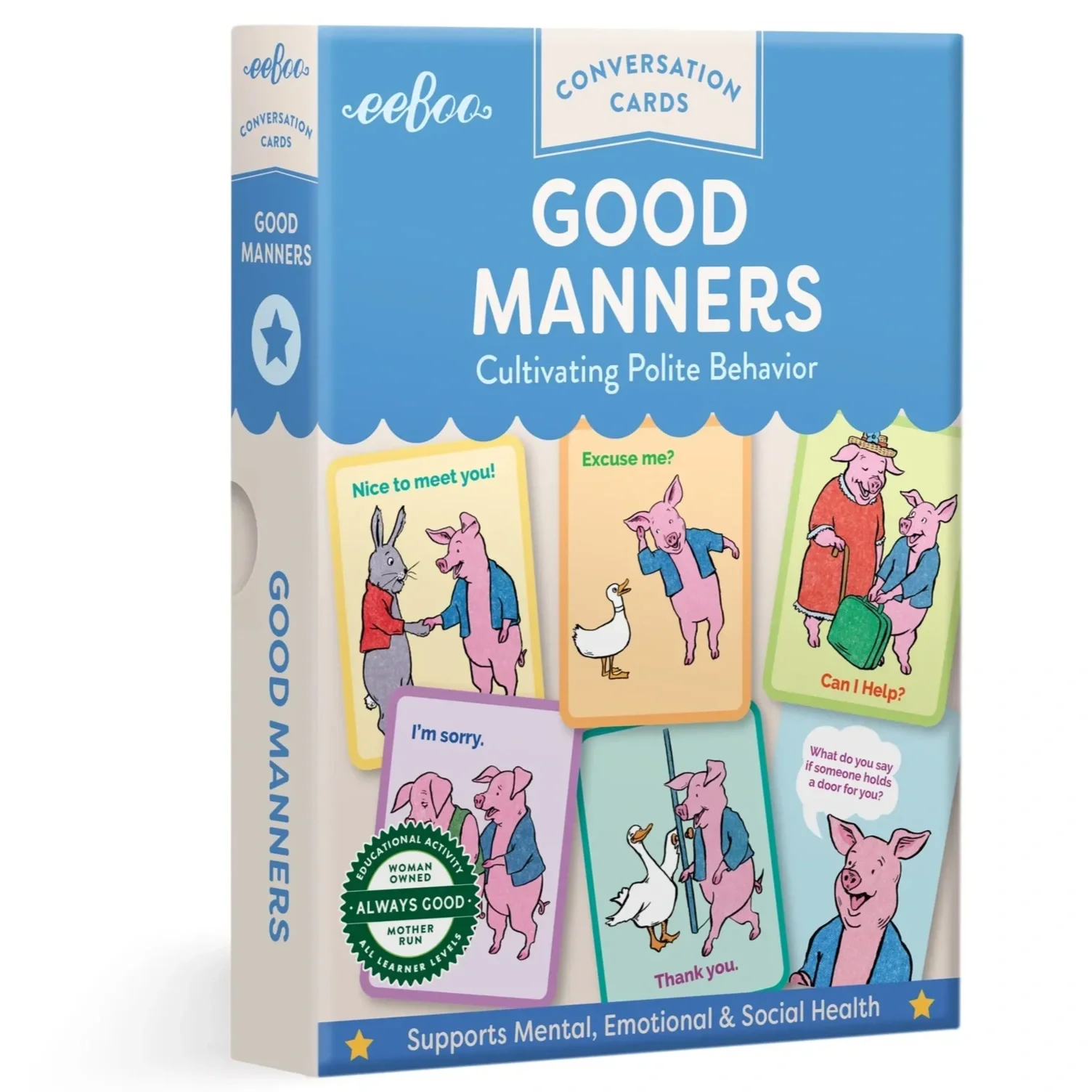
Good Manners Cards
These cards present real-life scenarios that encourage children to think about and discuss the best ways to respond with kindness, respect, and consideration for others. Whether it’s how to politely ask for something, show gratitude, or handle a disagreement, these cards are designed to spark meaningful conversations and develop prosocial skills.
-
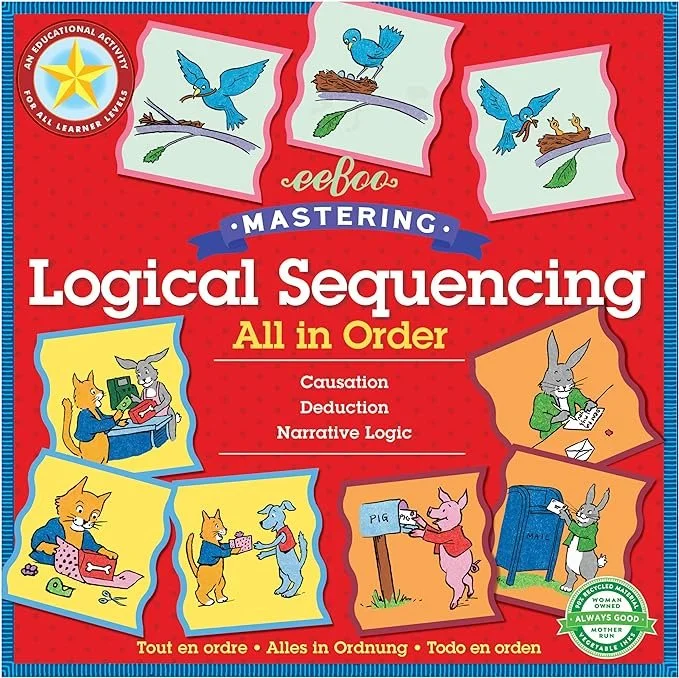
Logical Sequencing
Games that promote logical sequencing skills enhance problem-solving abilities, critical thinking, and decision-making by encouraging kids to recognize patterns and understand the order of operations. As children arrange sequences to achieve goals, they build a foundation for undertaking complex tasks and mathematical reasoning.
-
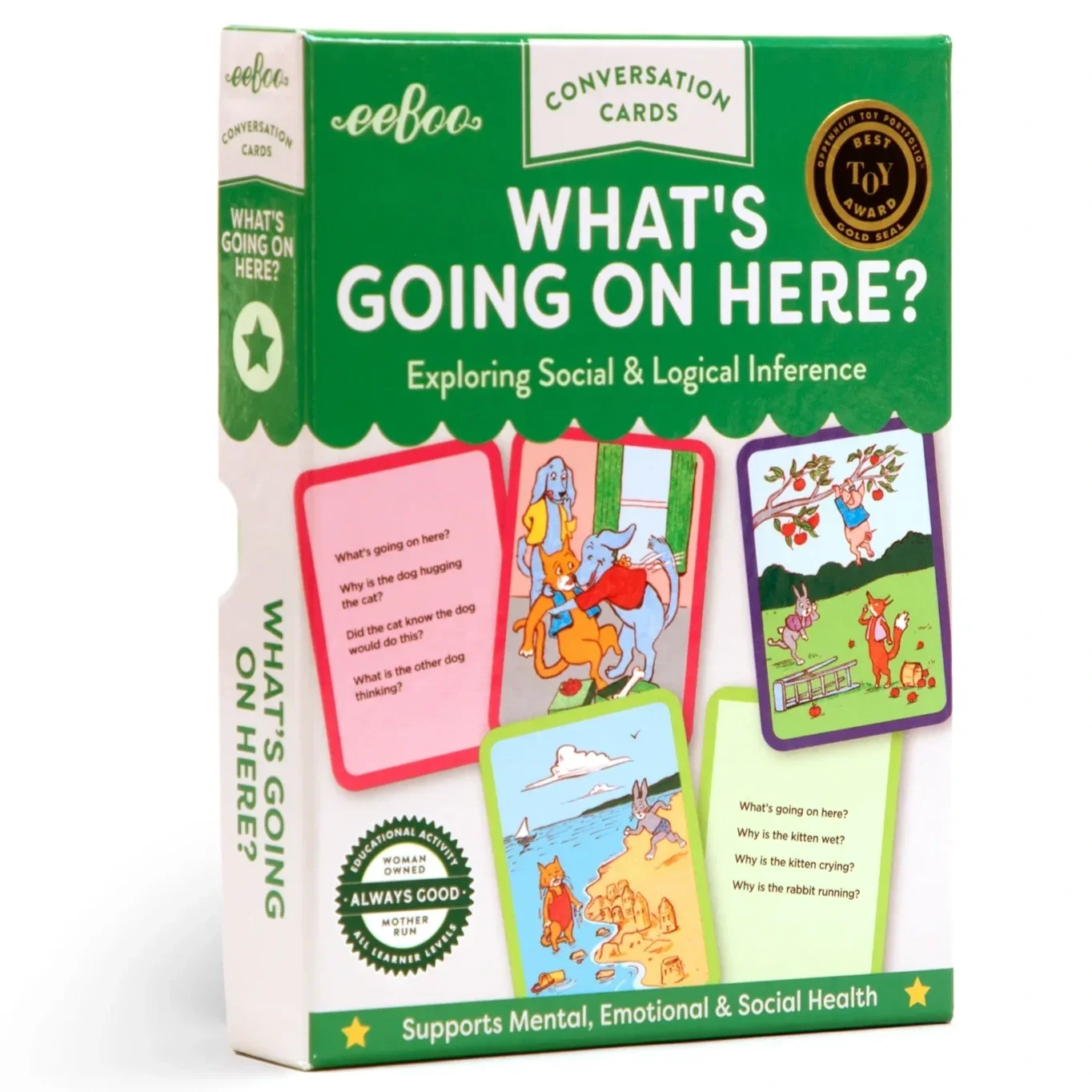
Picture Scenario Cards
These visual conversation cards enable kids to practice inferential thinking by drawing from personal experience and empathetic perspectives. Help kids cultivate communication skills, social literacy, and problem solving abilities through conversation!
